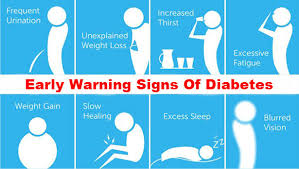+918048047807

This is your website preview.
Currently it only shows your basic business info. Start adding relevant business details such as description, images and products or services to gain your customers attention by using Boost 360 android app / iOS App / web portal.
Type 1 Diabetes is an autoimmune disease that caus...

Type 1 Diabetes is an autoimmune disease that causes the insulin producing beta cells in the pancreas to be destroyed, preventing the body from being able to produce enough insulin to adequately regulate blood glucose levels. Type 1 Diabetes may sometimes be referred to as juvenile diabetes, however, this term is generally regarded as outdated as, whilst it is commonly diagnosed in children, the condition can develop at any age. Insulin dependent diabetes is another term that may sometimes be used to describe type 1 diabetes. Because type 1 Diabetes causes the loss of insulin production, it therefore requires regular insulin administration either by injection or by insulin pump. Type 1 Diabetes symptoms Type 1 Diabetes symptoms should be acted upon immediately, as without treatment this type of diabetes can be deadly. Symptoms include: Above average thirst Tiredness during the day Needing to pee regularly Unexplained weight loss Genital itchiness Type 1 diabetes tends to develop more slowly in adults than it does in children and in some cases type 1 diabetes in adults may be misdiagnosed as type 2 diabetes. Type 1 Diabetes in adults over 35 years old will sometimes be referred to as Latent Autoimmune Diabetes of Adulthood (LADA). See more information on recognising the signs of type 1 diabetes Type 1 causes Type 1 diabetes is caused by a fault in the body’s immune response in which the immune system mistakenly targets and kills beta cells, the cells in the pancreas responsible for producing insulin. As more insulin producing cells in the pancreas are killed off, the body can no longer control its blood glucose levels and the symptoms of diabetes begin to appear. What causes the initial fault in the immune system is yet to be discovered, however, research suggests that the condition results from a combination of genetic predisposition with an environmental trigger. What triggers the immune system to behave this way is yet to be conclusively identified. To date, the strongest evidence points towards a virus as being the most likely trigger. Read more about the causes of type 1 diabetes Diagnosis If you show signs of having diabetes, your doctor may use blood or urine tests to diagnose diabetes. Your doctor should consider which type of diabetes you have as this can affect how your diabetes is treated. If the type of diabetes is unclear, your doctor may decide to carry out one or more of the following tests: Ketone test GAD autoantibodies test C-pepide test Because type 1 diabetes can develop quickly within children and young adults, a diagnosis of type 1 diabetes should be followed by same day referral to a multidisciplinary paediatric diabetes care team.

